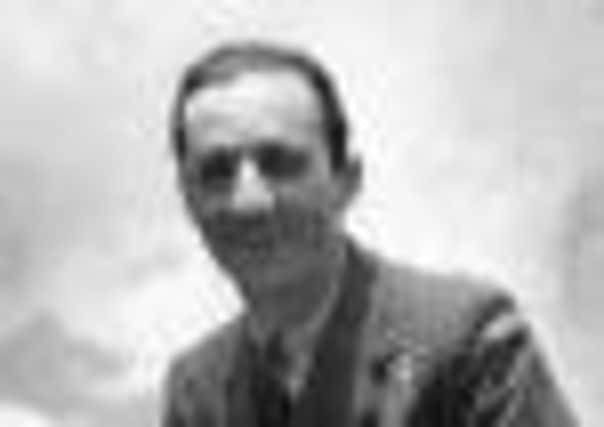Poland salutes the last of ‘the few’ as pilot laid to rest


In grey skies and with a colour guard from the RAF in attendance, Brigadier General Tadeusz Sawicz was laid to rest in the Polish capital’s main military cemetery.
The airmen had died aged 97 in Canada last month, but his ashes were returned to his native land for burial.
Advertisement
Hide AdAdvertisement
Hide AdBrig-Gen Sawicz flew Hurricanes with 303 Polish Squadron during the desperate battle for survival in the skies over Britain in 1940, having previously taken on the Luftwaffe during the battles for Poland and France.
“Poland welcomes home a hero and a great pilot,” said Tomasz Siemoniak, Poland’s defence minister.
“His bravery and commitment are an example for all Poles. General, we will always remember what you did for the republic.”
Robin Barnett, the British ambassador to Poland, said Brig-Gen Sawicz “had fought for our freedom and for Poland’s, and we will never forget”.
After the end of the Battle of Britain, Brig-Gen Sawicz continued to fly combat missions until the last days of the Second World War, being awarded medals by Holland and the United States to sit alongside his British Distinguished Flying Cross and the Virtuti Militari, one of Poland’s highest awards.
The Polish contribution to the RAF’s victory over Hitler’s air force remains a singular source of pride in Poland.
Polish pilots made up the second largest national contingent during the Battle of Britain after British pilots, and they soon developed a legendary reputation for both their fighting prowess and their determination to engage the enemy.
With many of them having already fought the Luftwaffe in Europe, they were among the most battle-hardened airmen in Fighter Command’s ranks, and they soon proved to be adept at shooting down German planes.
Advertisement
Hide AdAdvertisement
Hide AdThe 151 Polish pilots accounted for 12 per cent of all kills during the battle, and 303 Squadron earned the honour of the most effective unit, downing 125 enemy aircraft. At least 31 Polish pilots died defending Britain.
But during the war and directly afterwards, the British government’s desire to maintain good relations with the Soviet Union led to the prominent role Polish pilots played in Britain’s survival being downplayed.
As the war progressed, Britain deemed it undesirable that the “free Poles”, most of whom were bitterly opposed to Stalin’s determination to absorb Poland into a socialist bloc, should be given any prominence.
This led to Poles being excluded from the main victory parade in London following the end of the war in Europe.
Poland’s exclusion from the march, and a general treatment at the hands of the British that many Poles regard as shabby and shameful, still colours relations between Poland and Britain.
As the iron fist of Stalinism descended on Poland after Hitler’s defeat, many of the Polish pilots who had fought for the RAF preferred to stay in the UK rather than return to Poland and face possible persecution or even death at the hands of the Communist authorities.
Brig-Gen Sawicz remained in the UK until 1957 before emigrating to Canada, where he worked in the aviation industry.
Collectively, Battle of Britain pilots were known as “the few” after a speech of thanks by Winston Churchill, in which he said: “Never was so much owed by so many to so few.”